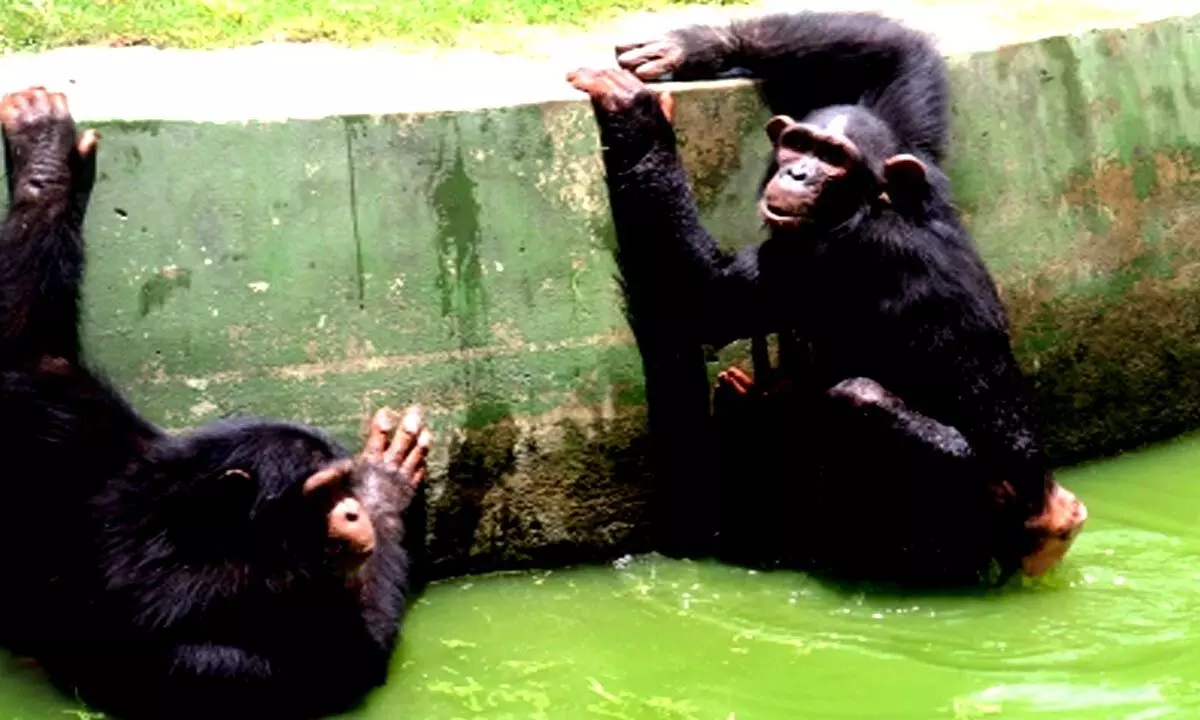Apes tend to remember friends not seen for over 25 years: Study
Share :

Apes recognise photos of groupmates they haven’t seen for more than 25 years and respond even more enthusiastically to pictures of their friends, a new study finds.
New York: Apes recognise photos of groupmates they haven’t seen for more than 25 years and respond even more enthusiastically to pictures of their friends, a new study finds.
The study demonstrates the longest-lasting social memory ever documented outside of humans, and underscores how human culture evolved from the common ancestors we share with apes, our closest relatives.
"Chimpanzees and bonobos recognise individuals even though they haven’t seen them for multiple decades," said Christopher Krupenye, an Assistant Professor at Johns Hopkins University who studies animal cognition.
"And then there’s this small but significant pattern of greater attention toward individuals with whom they had more positive relationships. It suggests that this is more than just familiarity, that they’re keeping track of aspects of the quality of these social relationships," he added.
The study was published in the journal Proceedings of the National Academy of Sciences.
Lead author Laura Lewis, a biological anthropologist and comparative psychologist at University of California, Berkeley, said: "We tend to think about great apes as quite different from ourselves but we have really seen these animals as possessing cognitive mechanisms that are very similar to our own, including memory. And I think that is what’s so exciting about this study."
The research team was inspired to pursue the question of how long apes remember their peers because of their own experiences working with apes -- the sense that the animals recognised them when they’d visit, even if they’d been away for a long while.
The team worked with chimpanzees and bonobos at Edinburgh Zoo in Scotland, Planckendael Zoo in Belgium, and Kumamoto Sanctuary in Japan.
The researchers collected photographs of apes that had either left the zoos or died, individuals that participants hadn’t seen for at least nine months and in some cases for as long as 26 years.
The team invited apes to participate in the experiment by offering them juice, and while they sipped it, the apes where shown two side-by-side photographs -- apes they’d once known and total strangers.
Using a non-invasive eye-tracking device, the team measured where the apes looked and for how long, speculating they’d look longer at apes they recognised. The apes looked significantly longer at former groupmates, no matter how long they’d been apart.
And they looked longer still at their former friends, those they’d had more positive interactions with. In the most extreme case during the experiment, bonobo Louise had not seen her sister Loretta nor nephew Erin for more than 26 years at the time of testing.
She showed a strikingly robust looking bias toward both of them over eight trials.
The results suggest great ape social memory could last beyond 26 years, the majority of their 40 to 60-year average lifespan, and could be comparable to that of humans, which begins to decline after 15 years but can persist as long as 48 years after separation.
Such long-lasting social memory in both humans and our closest relatives suggests that this kind of memory was likely already present millions of years ago in our common evolutionary ancestors. This memory likely forged a foundation for the evolution of human culture and enabled the emergence of uniquely-human forms of interaction such as intergroup trade where relationships are maintained over many years of separation, the team said.








